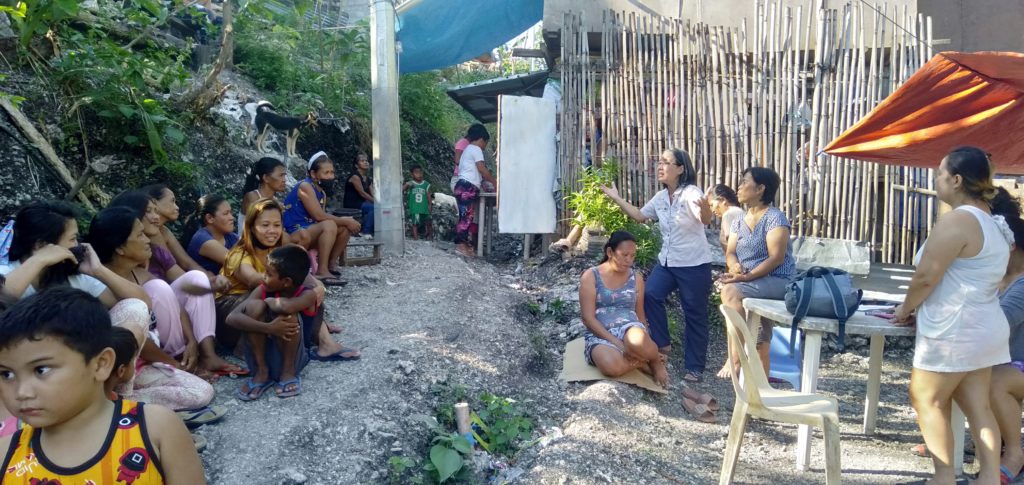The Visayas Primary Healthcare Services, Inc. has successfully conducted three levels of basic health skills trainings for community health workers (CHWs) in its project, “ Building community-based programs (CBHPs) in Northern Cebu, Philippines” in Barangays Dalingding Norte and Paypay in Daanbantayan and Tindog in Medellin, which were affected by Typhoon Yolanda in November 2013.
The project is supported by LandsAid, a German humanitarian aid organization. It started last May and ends in October 2016.
The project works closely with the people’s organizations in the communities, namely, the Nakahiusang Kababayen-an sa Sitio Mayjo (United Women in Sitio Mayjo, Paypay), Nagkahiusang Lumolupyo sa Hacienda Gomez (United Residents in Hacienda Gomez, Sitio Gomez, Dalingding Norte), and the Nagkahiusang Lumolopyo sa Sitio Manan-aw (United Residents in Sitio Manan-aw) in Tindog, Medellin.
Building CBHPs in the three barangays addresses the lack of health services in the communities. At the core of the CBHP are community health workers (CHWs) who are trained and equipped with knowledge and skills on basic preventive and promotive health care for common illnesses and health problems.
The first level of basic health skills training for 37 community health workers of the three people’s organizations was conducted in August and September, the second level in October and the third level was completed in December.
The first level comprised of the following, namely: (1) introduction about the Philippine health care system, (2) community-based health programs (CBHP) as a response to the people’s need for health care, (3) primary health care as an approach, (4) simple home remedies to treat common ailments including herbal medicine, acupressure, cupping therapy, and water therapy, and (5) vital signs taking: blood pressure, weight, height, temperature, pulse rate and respiratory rate. Resource persons were staff of the VPHCS and invited doctors and nurse volunteers.
The second level of basic health skills training consisted of the following, namely: (1) simplified anatomy and physiology of the human body, (2) simplified history taking and physical examination, (3) Integrated Management of Childhood Illnesses (IMCI) with emphasis on control of acute respiratory infections and diarrheal diseases, (4) nutrition and malnutrition and (5) immunization.
The third level consisted of the following, namely: (1) diagnosis and management of common illnesses such as hypertension, urinary tract infection, and respiratory tract infections, (2) maternal health, family planning and birth control methods, (3) proper hygiene and environmental sanitation, and (4) growth monitoring of children.
The trained CHWs continued to conduct home visitations and community clinics together with the project staff. They treated patients having colds, cough, fever, stomach ache, muscle pains, body fatigue, hypertension, and urinary tract infection with herbal medicine, water therapy, acupressure, and cupping therapy, and referred those whom they cannot treat to the local health center.
They weighed children and advised mothers on proper nutrition for them. They monitored and identified those who were hypertensive and referred them to the health centers for medication. They advised couples who wanted birth control on the natural and artificial methods.
Gatherings of residents to discuss about health problems were also conducted by the trained CHWs. The topics included control of acute respiratory tract infections and diarrheal diseases, control of hypertension and proper nutrition among children, among others.
The project continues in the coming year with more trainings for the CHWs, health educations and health services for the residents in the three communities. It shall also launch medical missions and health programs that will better address the problems in the communities.



